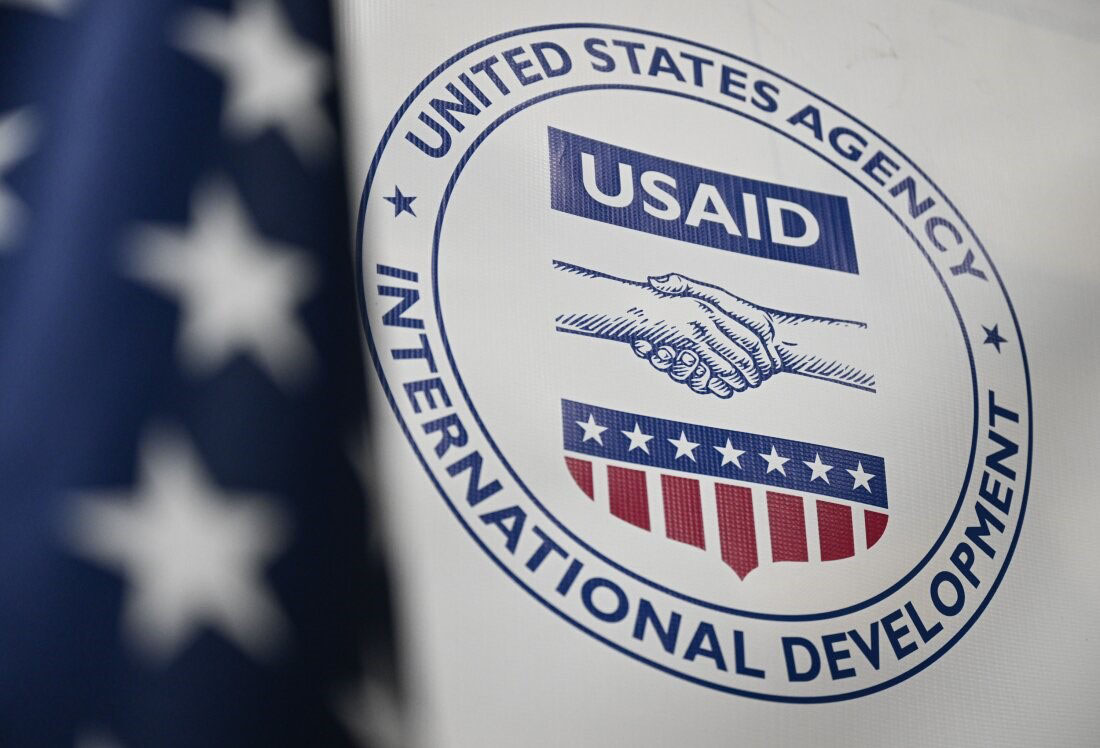US President Donald Trump’s executive order on the review of United States Agency for Inter-national Development (USAID) aid is expected to impact programmes here.
A plethora of executive orders from Trump in recent days on top of his vow to deport illegal migrants has reverberated around the world and Guyana is no exception.
Sources say that programmes being funded by USAID here are on hold and administrators are being advised that a stop order was issued on January 24, 2025. The stop order is in effect until further notice.
The stop order has triggered shock as many USAID programmes are dedicated to health, education and youth and are particularly important in poor countries.
USAID is funding a range of programmes here and in the Caribbean including the Improving Economies for Stronger Communities (IESC) which created the Carib-bean Agricultural Produc-tivity Improvement Acti-vity (CAPA). This initiative is aimed at increasing efficiency and reliability in growing and accessing food so that farmers can better nourish families, communities, and nations.
In July last year, Deputy USAID Administrator Isobel Coleman visited this country and met with senior Guyanese governmental, civil society, and business leaders to discuss ways USAID can continue to support inclusive economic growth, shared prosperity, and good governance.
Coleman met with leading members of Guyanese opposition parties and civil society leaders, noting that USAID views civil society and open political debate as essential building blocks of democracy and development.
During her time in Georgetown, Coleman delivered remarks at the Caribbean Investment Forum, highlighting USAID’s support for small- and medium-sized enterprises (SMEs) and reiterating the need for private sector investment to build inclusive and sustainable economic growth. At the Forum, she announced US$1.45 million in new funding to expand USAID’s Economic Development Accelerator – which presently supports small- and medium-sized enterprises (SMEs) in Guyana – to additional SMEs in Suriname and Trinidad and Tobago, helping Caribbean entrepreneurs grow their businesses and reach new markets.
In December last year, USAID’s Youth Resilien-ce, Inclusion, and Em-powerment (Y-RIE) programme, in collaboration with the Guyana Football Federation (GFF), launch-ed the GoalGetters initiative.
The programme which utilises football, life skills training, and community activities to nurture resilience, reduce violence, and strengthen communities, targets youths aged 12-19 from the communities of Sophia, Werk-En-Rust, Albouystown, Charlestown, and New Amsterdam.
Specifically, the initiative uses football, life skills training, and community activities to foster resilien-ce, reduce violence, and strengthen communities.
All of these projects are now at risk of being discontinued.
Reuters yesterday reported that a purge of senior staff at USAID appeared designed to silence any dissent over Trump’s plans to dramatically reshape U.S. foreign aid, current and former USAID officials told Reuters.
Trump, who ordered a 90-day pause in most foreign aid and said his officials will review the spending, has pledged to remake the federal workforce and dismantle what he and his allies call the “deep state.”
The Trump administration on Monday put on leave about 60 senior career officials at USAID, in what one former official called a “Monday afternoon massacre.”
Reuters said that an internal memo said the new leadership had identified several actions in the agency that “appeared to be designed to circumvent the President’s Executive Orders and the mandate from the American people.”
The message appeared to relate to officials’ efforts to secure waivers to Trump’s aid pause for crucial programmes, some current and former officials said, with one saying the Trump administration’s actions were already having a “massive chilling effect” on staff at the agency.
“That short email that went out to all staff afterwards … is clearly designed to instill fear,” said a career senior executive service official who was put on administrative leave on Monday.
The official, who requested anonymity to discuss sensitive matters, warned that the move created a “complete vacuum of non-partisan leadership in USAID (in) Washing-ton,” adding that it left most of the operating units at the agency in Washing-ton without leaders.
Reuters yesterday reported that field hospitals in Thai refugee camps, landmine clearance in war zones, and drugs to treat millions suffering from diseases such as HIV are among the programmes facing the chop.
Humanitarian organisations and U.N. agencies say they could face drastic curbs on their ability to distribute food, shelter and healthcare if the freeze becomes permanent.
The U.S. is by far the biggest contributor to global humanitarian aid, supplying an estimated $13.9 billion in 2024, accounting for 42% of all aid tracked by the United Nations.
Clinics at camps in Thailand providing shelter for about 100,000 refugees from Myanmar were ordered to shut after the U.S. froze funding to the International Rescue Com-mittee, according to a senior aid worker, Reuters said.
The cuts will also affect the supply of lifesaving drugs for HIV, malaria and tuberculosis around the globe, which millions of people depend on, according to another memo seen by Reuters.
Yesterday, contractors and partners who work with USAID began receiving such memos to stop work immediately.
“This is catastrophic,” said Atul Gawande, former head of global health at USAID who left the agency this month. “Donated drug supplies keeping 20 million people living with HIV alive. That stops today.”
The cuts will affect organisations working with 6.5 million orphans and vulnerable children with HIV in 23 countries, Gawande said.








